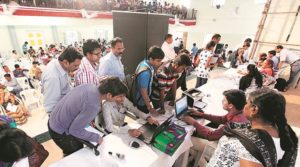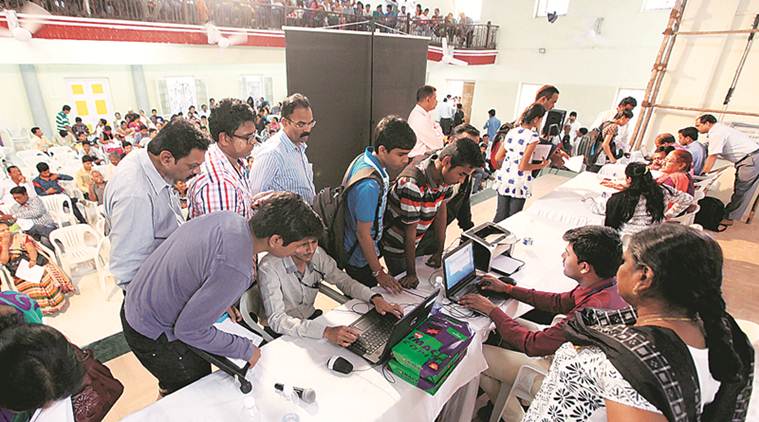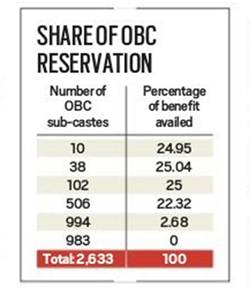
Central OBC Quota Jobs Reduced Drastically From 97% to Less than 25%

About 97% of all the jobs and admission slots set aside at Central level to cater for Other Backward Classes (OBCs) has reduced to less than 25% of the total sub-castes under that same category. Over 983 OBC communities, which constitute 37% of the total, are not represented at all. This implies that they got no single job and not seat. Only 10 communities categorized as OBCs have provided up to 24.95% of the jobs and admission slots.
Undisclosed sources say that the communities which fall benefited include Kurmi, Yadav, Jat (all the Jats of Rajasthan excluding Dholpur and Bharatpur district are in the Central OB list), Thevar, Ezhava, Saini, and Vokkaliga.
One lesson learnt by the Indian express is that the skew in OBC benefit is a necessity in having consultation paper prepared by the Commission to look into the sub-grouping of the OBCs.

The commission which was appointed in October 2017 and its term of service extended last week to May 2019, was in charge of the data analysis of 1.3 lakh Central jobs assigned to OBC quota for the past five years. It also looked into the admissions to different institutions of higher learning such as IIMs, NITs, IITs, and AIIMs for three years that have past.
One fact which came out of the exercise is that many states in OBC quotas had a lion’s share in the entire Indian population. It also disclosed that quite a number of states shared fewer benefits compared to their share in the population. As a result, inequality emerged cutting across all the territories and states and the effect is almost the same as the one which exists in OBC quota benefits.
The source revealed that over 994 sub-castes were represented only b 2.68% in job recruitments and college admissions. The commission under the leadership of the retired Chief Justice who served in Delhi High Court G Rohini has forwarded these results to all the Chief Secretaries and State OBC commissions asking for their views.
The Commission has opted to re-group the OBCs to as a measure to the inequality and to create the level playing field. That is to say, placing the Central quota of reservation in different sub-groups depending on their share of India’s total population. The communities will be placed in these subgroups.
The job reservations for OBCs Act came into effect in 1993 and the admission slots in Central government institutions (including the 27%) came into action during the UAP1 government in the year 2006.
The job reservations are done in different governmental departments such as Central public sector enterprises, Railways, Department of Posts, public sector banks, Police Forces, insurance institutions and many different Central services and All India Services which include Indian Police Service (IPS), Central Secretariat services, and Indian Administrative Service (IAS).
The Indian Express was informed by the state Chief Secretary confirming the receipt of the report and are preparing to give their thoughts in it.
Reliable sources not mentioned reveals that the recruitment data was drawn from Railways, Many different Police Forces, Department of Posts, banks, IAS, IPS, central public sector enterprises, central Secretariat among others, covering their recruitment activities for the past five years. Data covering the admissions into the higher institutes of learning was also collected on the basis of the OBC reservation in those institutions for the past three years.
Sources also state that the Commission is now worried and is working on ensuring that none of the sources in place reveals a rough approximation of the individual castes and communities that are in the Central list. 10 states/UTs have put in place the sub-grouping for what constitutes their OBC list but interestingly, none of them has tabled a proper criterion for filling-in the community in any of those groups.
The Commission has, however, sound a warning stating that using perceived social status, religion, and traditional occupation, as criteria would be inappropriate.
“The main idea here is not to create a new ladder among the OBCs but to ensure that the playing field is leveled for everyone regardless of their numbers, regional distribution, and backwardness. However, performing this without discriminating the beneficiaries already in place is the problem we experience.” Said one of the officials serving in the OBC Commission.